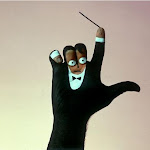Thursday, November 27, 2008
Tuesday, November 25, 2008
He landed on his feet

CSO names new president Cincinnati Enquirer Cincinnati.Com
He was the last executive director of the Florida Philharmonic Orchestra. He presided over the FPO's bankruptcy and demise in 2003.
I occasionally wonder what happened to him. I'm pleased to see he has resurfaced, this time in Ohio, in a promising and much more stable new orchestral environment.
But in 2002, he arrived in Florida with a swamp to drain. The FPO had some, as it turns out, insurmountable problems: financial desperation going back many years; the recent loss, after 15 years, of its founding music director (James Judd); and subscription series in three South Florida cities, none of which would claim the failing group as its own.
Worse, I suspect some shenanigans or perhaps just a convenient if not ulterior motive born of desperation and exhaustion. Whatever the reasons, the FPO's failed fund-raising attempts ultimately led to the Cleveland Orchestra (!) becoming a 10-year "resident" of the now-Arsht Performing Arts Center in Miami.
I had hoped that Devey, then a new father and personable young administrator, would land on his feet. But clearly, it would not be in South Florida.
Music Critic Janelle Gelfand, in a Cincinnati Enquirer article published on Friday, Nov. 15, announced that Devey will now make Cincy his new home. Along the way were stops in Chicago (with the Boston Consulting Group) and six months in Birmingham (the Alabama Symphony Orchestra).
Cincy, my old stomping ground from conservatory days, has a fine, 113-year-old orchestra with a budget far larger than the FPO could ever imagine. And you know what they say: New level, bigger devil.
But I certainly wish Trey all the best -- and far more credit than he could garner from his time served in the tropics.
Monday, November 24, 2008
Toulouse-Lautrec birthday
 I didn't know it at the time -- the great painter was attracted to redheads.
I didn't know it at the time -- the great painter was attracted to redheads.But in a dream of a lifetime experience, I discovered a painting I'd never seen by the French genius Toulouse-Lautrec. You barely saw the face of the red-headed woman. She stood simply; her head turned away from the viewer. Nothing distinguished her surroundings. Her clothing -- unlike so much over-the-top costuming in the artist's Moulin Rouge posters -- is simple, a white long-sleeve shirt. But my connection to her on a human level was immediate. I'd promenade to other paintings, but every three or four canvases later, I'd return to the redhead.
I'm still wracking my brain to remember where or when I saw her. Perhaps an exhibit of the French Impressionists at the Norton Museum (West Palm Beach, FL). Oh, of course! It was that fabulous, overwhelming visit to the Barnes Foundation in Philadelphia.
Rosa La Rouge is part of my life now; she's the image that comes to mind when I think of Toulouse-Lautrec nowadays. His "noisier," livelier things -- the splashy posters and eye-catching graphic arts -- were my first introduction. But his silent portrait says so much more.
Henri de Toulouse-Lautrec was born on this day: Nov. 24, 1864, in Albi, France. He died in Bordeaux on Sept. 9, 1901.
"A Montrouge" - Rosa La Rouge (1886-87), Oil on canvas
28 1/2 x 19 1/4 in. (72.3 x 49 cm)
Barnes Foundation, Merion, Pennsylvania
Barnes Foundation, Merion, Pennsylvania
Sunday, November 23, 2008
Congrats to Palm City (FL) youngster

All the best to young violinist Michael Province, soloist in Sarasate's "Zigeunerweisen" (Gypsy Airs) on "Oprah" on Mon., Nov. 10! The 13-year-old from Palm City resident performed for the international television audience as one of the talented youngsters that mega-star Oprah Winfrey is showcasing on her popular daytime talk show. Keep up the great work, Michael!
Remembrance: JFK

I'm of an age to remember the day Nov. 22, 1963.
A school day, but the lessons learned came from a black-and-white TV in the classroom, not the shell-shocked teacher. As a student of Y.H. Thomas Junior High School, I sat in the old-fashioned wooden desk, amid 20 other students. We sat, bent over our desks, our heads on our arms, face down, so no one could see us cry. No matter; you could still hear the sobs from various parts of the room.
Not so long ago, we had elected John F. Kennedy president in the school election. Our hope was born out later on a national scale when our parents voted. And the trauma of Nov. 22, beginning in that dingy classroom, my face pressed to the wood, would take years to release. From then on, it seems, I jumped every time a TV newscaster announced, "We interrupt this program with a special bulletin ..." It was the first time I had reason to deplore the senselessness of all that youth and beauty buried in the ground. (Photo right: Graveside ceremony, from the JFK Library)
The enormity of the hurt returned in 1982 with the death of California opera conductor Calvin Simmons, age 32, from a canoeing accident that might have been suicide (Below: Young lions -- conductors Calvin Simmons, righ, and Simon Rattle).
In both cases, the what-would-have-beens are still so haunting, never to be resolved.

Labels:
Calvin Simmons,
classical music,
John F. Kennedy,
Simon Rattle
Subscribe to:
Comments (Atom)






